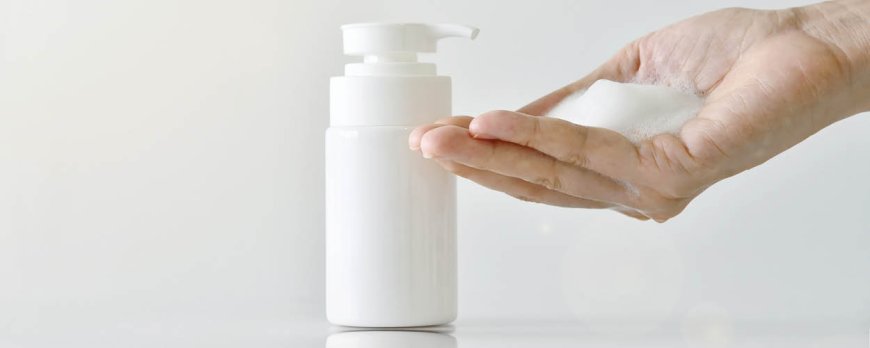What does acne on the cheeks mean?
Discover the truth behind 'What does acne on the cheeks mean?' Uncover causes, pore-clogging factors, and preventive measures for cheek acne here.
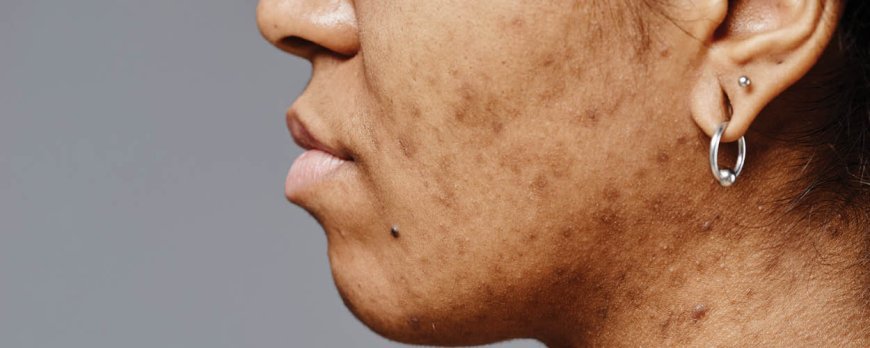
What does acne on the cheeks mean?
Acne on the cheeks can be a common skin concern, but understanding its causes and implications is crucial for effective treatment and prevention.
Key Takeaways:
- Acne on the cheeks can be caused by various factors, including acne mechanica, external influences, and potential hormonal fluctuations.
- Acne mechanica occurs due to friction or rubbing of the skin, such as from cell phones, pillow contact, or chin straps.
- External factors, like hair products containing oils or chemicals, can clog or irritate the pores on the cheeks, leading to acne.
- Although hormones may play a role, there is no evidence to suggest that acne on the cheeks accurately predicts hormonal disturbances.
- Maintaining a consistent skincare routine, using noncomedogenic products, and addressing friction against the skin can help prevent and treat cheek acne.
Causes of cheek acne
There are several factors that can contribute to the development of acne on the cheeks, each with its own unique implications. One common cause is acne mechanica, which occurs when there is constant friction or rubbing of the skin. This can happen when we hold our cell phones against our faces, toss and turn against our pillows while sleeping, or wear equipment or clothing with chin straps. The friction and pressure can lead to clogged pores and breakouts on the cheeks.
External factors can also play a role in cheek acne. The use of hair products that contain oils or chemicals can clog or irritate the pores on the cheeks, causing acne to flare up. It's important to be mindful of the products we use and choose noncomedogenic options, which are specifically formulated to not clog pores. This can help minimize the risk of developing acne on the cheeks.
While hormones are often associated with acne, there is no definitive evidence to suggest that acne on the cheeks accurately predicts hormonal disturbances. However, hormonal fluctuations can contribute to overall acne development. It's important to note that there is no one-size-fits-all solution when it comes to managing cheek acne, but maintaining good skincare practices can help keep breakouts at bay.
To prevent and treat acne on the cheeks, it's crucial to establish a consistent skincare routine. This includes cleansing the skin gently, avoiding harsh scrubbing and exfoliating products that can further irritate the skin. Using noncomedogenic hair and skincare products can also make a significant difference. These products are specifically designed not to clog pores and can help minimize the risk of developing acne on the cheeks.
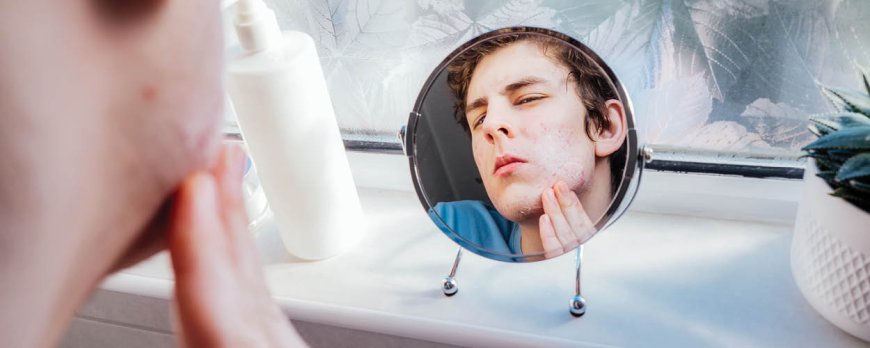
Acne Mechanica and Its Impact on Cheeks
Acne mechanica, caused by constant friction or pressure on the cheeks, can be a common culprit behind cheek acne breakouts. This type of acne is triggered when the skin is subjected to repeated rubbing or irritation. The friction can come from various sources, such as holding a cell phone against the face, constant contact with a pillow during sleep, or wearing equipment or clothing with a chin strap.
To manage and alleviate acne mechanica on the cheeks, it's important to address the root cause - friction. One effective remedy is to regularly clean cell phones and other devices that come into contact with the face, as they can harbor bacteria and contribute to acne development. Additionally, using a soft pillowcase made from gentle materials like silk or satin can reduce friction during sleep and minimize cheek acne breakouts.
If necessary, include an H3 heading:
Remedies for Acne Mechanica on Cheeks
- Keep the skin clean and avoid touching the cheeks excessively, especially when using electronic devices or wearing chin straps.
- Use non-comedogenic skincare products that won't clog the pores.
- Avoid tight-fitting clothing or equipment that can cause friction on the cheeks.
- Consider using silicone gel sheets or bandages to protect the skin from excessive rubbing.
- Consult with a dermatologist for specialized advice and treatment options, such as topical medications or laser therapy.
By taking these steps and implementing appropriate remedies, individuals can effectively manage and reduce the occurrence of acne mechanica on the cheeks.
External Factors Causing Cheek Acne
The skincare products we use on our hair can inadvertently contribute to the development of acne on the cheeks. Certain hair products contain oils or chemicals that can clog or irritate the pores, leading to acne breakouts. To prevent this, it is important to choose noncomedogenic hair products that are specifically formulated to minimize pore-clogging.
Here are some tips to consider when selecting hair products to help prevent cheek acne:
- Look for shampoos, conditioners, and styling products that are labeled as noncomedogenic. These products are designed to not clog the pores and are less likely to cause acne breakouts on the cheeks.
- Avoid using heavy oils or greasy hair serums that can transfer onto the cheeks and potentially lead to pore blockage.
- Consider opting for water-based or lightweight hair products that are less likely to contribute to acne formation on the cheeks.
In addition to using noncomedogenic hair products, it is also essential to implement an effective skincare routine that addresses the needs of your skin. Cleansing the face twice a day with a gentle cleanser, exfoliating regularly to remove dead skin cells, and using a moisturizer suitable for your skin type can help maintain healthy skin and prevent acne breakouts on the cheeks.
Addressing the Cause of Friction Against the Skin
Friction and rubbing against the skin can also contribute to the development of acne on the cheeks. This can occur when we hold our cell phones against our faces, rest our cheeks against pillows while sleeping, or wear equipment or clothing with chin straps.
To address the cause of friction and minimize its impact on cheek acne, consider the following:
- Use earphones or speakerphone options instead of holding cell phones against the cheeks.
- Choose pillows made of materials that are gentle on the skin, such as satin or silk, to reduce friction and irritation.
- Avoid wearing equipment or clothing with chin straps for extended periods of time, and ensure they are clean and properly fitted to minimize pressure and friction on the cheeks.
By being mindful of the external factors that contribute to cheek acne and implementing preventive measures, you can help reduce the occurrence of acne breakouts on the cheeks and maintain clearer, healthier skin.
Possible Hormonal Factors and Cheek Acne
While hormones are often associated with acne development, their role in cheek acne remains uncertain. Hormonal fluctuations, especially during puberty, are known to contribute to acne breakouts in general. However, specific evidence pinpointing the connection between hormones and acne specifically on the cheeks is limited.
It is important to note that not all cases of cheek acne can be attributed to hormonal disturbances. Other factors, such as external influences and skin care practices, can also play a significant role in the development and management of cheek acne.
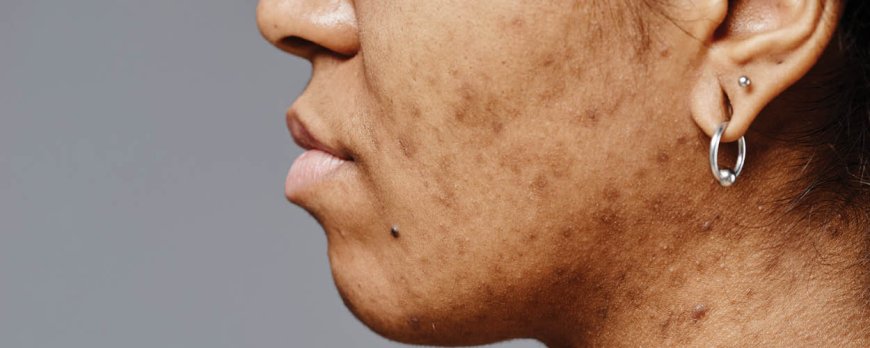
Possible Causes of Hormonal Acne on the Cheeks
- Increased sebum production: Hormonal imbalances can stimulate the sebaceous glands in the skin, leading to an overproduction of sebum. When excess sebum mixes with dead skin cells and clogs the pores, it creates an optimal environment for acne-causing bacteria to thrive.
- Inflammation: Hormonal fluctuations can trigger inflammation in the skin, making it more prone to acne breakouts.
Managing Cheek Acne
While the direct connection between hormones and cheek acne remains uncertain, there are effective ways to manage and minimize acne on the cheeks. Here are some strategies to consider:
- Consistent skincare routine: Adopt a daily skincare routine that involves gentle cleansing, exfoliation, and moisturization. This can help maintain the overall health of the skin and reduce the risk of acne breakouts.
- Avoid pore-clogging products: Use noncomedogenic or oil-free hair and skincare products to minimize the risk of clogged pores on the cheeks.
- Address underlying causes: Identify and address any external factors that may be contributing to cheek acne, such as friction from cell phones or chin straps. Taking steps to reduce or eliminate these factors can help prevent acne development.
- Seek professional advice: If cheek acne persists or worsens, it may be beneficial to consult a dermatologist who can provide personalized recommendations and treatment options based on individual circumstances.
Remember, managing cheek acne requires a holistic approach that considers multiple factors, including hormones, external influences, and skincare practices. By adopting a comprehensive strategy, individuals can take control of their skin health and minimize the impact of acne on their cheeks.
Maintaining Good Skincare Practices for Cheek Acne
Adopting a proper skincare routine can significantly reduce the occurrence and severity of acne on the cheeks. By following these simple steps, you can take control of your skin health and prevent acne breakouts:
- Cleanse: Start by cleansing your face twice a day with a gentle cleanser. This helps remove dirt, oil, and dead skin cells that can contribute to clogged pores and acne formation.
- Exfoliate: Regular exfoliation can help unclog pores and promote cell turnover. Choose a gentle exfoliator and use it once or twice a week to slough off dead skin cells and keep your skin clear.
- Moisturize: Use a lightweight, non-comedogenic moisturizer to keep your skin hydrated without clogging the pores. Hydrated skin is less prone to acne breakouts.
- Protect: Apply a broad-spectrum sunscreen with an SPF of 30 or higher every day to shield your skin from harmful UV rays. Sun exposure can worsen acne and cause inflammation.
- Avoid Touching: Keep your hands off your face as much as possible. Touching your face transfers bacteria and oils from your hands, which can trigger acne breakouts.
- Don't Overdo It: While it's essential to keep your skin clean, excessive washing or scrubbing can strip away natural oils and disrupt the skin's moisture barrier. Stick to gentle cleansing techniques.
Using Noncomedogenic Products for Cheek Acne
When selecting hair and skincare products, opt for noncomedogenic options. Noncomedogenic products are specifically formulated to avoid clogging the pores and are less likely to cause acne breakouts. Look for products labeled as "noncomedogenic," "oil-free," or "won't clog pores." This ensures that the products you use on your hair and face won't contribute to cheek acne.
Addressing Friction Against the Skin
To reduce friction and prevent acne mechanica on the cheeks, consider the following tips:
- When using a cell phone, use speakerphone or headphones instead of pressing it against your face.
- Avoid sleeping on your side or with your face buried in the pillow. Instead, try sleeping on your back to minimize contact between your face and the pillowcase.
- If you wear equipment or clothing with chin straps, make sure they fit properly and aren't too tight. Consider padding or cushioning the straps to minimize friction against the skin.
By implementing these skincare practices, using noncomedogenic products, and addressing the cause of friction against the skin, you can effectively prevent and manage acne on the cheeks. Remember, consistency is key, and it may take time to see improvements. If you're struggling with severe or persistent acne, consult a dermatologist for personalized advice and treatment options.
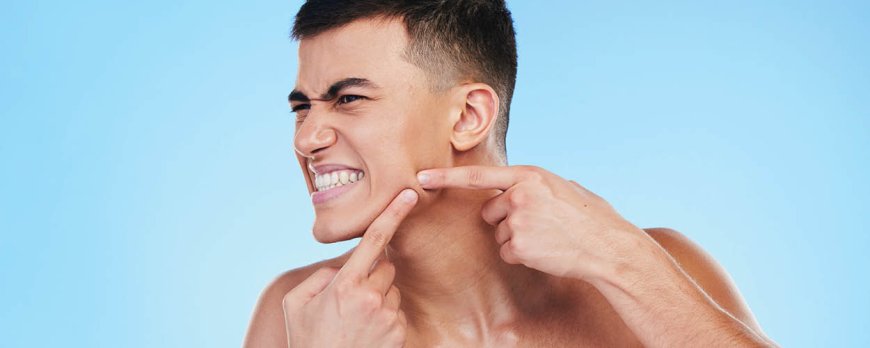
Using Noncomedogenic Products for Cheek Acne
Choosing noncomedogenic hair and skincare products can make a significant difference in preventing cheek acne breakouts. These products are specifically formulated to not clog the pores, which is crucial in maintaining clear and healthy skin on the cheeks. Here are some reasons why incorporating noncomedogenic products into your routine can be beneficial:
- Noncomedogenic products are less likely to cause pore blockage, reducing the risk of acne breakouts on the cheeks.
- They are typically oil-free, minimizing the chances of excess oil buildup on the skin's surface.
- Noncomedogenic products are designed to be gentle and suitable for all skin types, making them less likely to irritate or inflame the skin.
When choosing noncomedogenic hair products, opt for those that are labeled oil-free and free of irritants like sulfates and heavy fragrances. Consider using noncomedogenic shampoos, conditioners, and styling products to avoid transferring any pore-clogging substances from your hair to your cheeks.
Incorporating noncomedogenic skincare products into your routine is equally important. Look for noncomedogenic cleansers, moisturizers, and sunscreens to help maintain the health of your skin. These products are often lightweight and breathable, allowing the skin to breathe while providing necessary hydration and protection.
Remember, prevention is key. By using noncomedogenic hair and skincare products, you can minimize the risk of developing cheek acne and promote overall skin health.
Addressing Friction Against the Skin
By identifying and addressing the root cause of friction against the skin, you can effectively eliminate and prevent cheek acne. Friction, such as from holding a cell phone against your face or rubbing against a pillow while sleeping, can lead to irritation and inflammation, resulting in acne breakouts on the cheeks. Here are some steps you can take to address this issue:
- Keep your cell phone clean: Regularly wipe down your cell phone screen with a disinfecting wipe to remove any dirt, oils, or bacteria that may accumulate. Consider using headphones or speakerphone to minimize direct contact between your phone and face.
- Change pillowcases frequently: Pillowcases can harbor oils, dirt, and bacteria that can transfer to your cheeks while you sleep. To prevent this, change your pillowcase at least once a week and opt for pillowcases made from breathable fabrics like cotton.
- Avoid tight chin straps: If you frequently wear equipment or clothing with chin straps, such as helmets or face masks, make sure they are not too tight. Loosen them to reduce friction against the skin and allow for better airflow.
In addition to addressing friction, it is important to take a holistic approach to managing cheek acne. Here are some other tips:
- Establish a consistent skincare routine: Cleanse your face twice a day using a gentle, noncomedogenic cleanser. Follow up with a moisturizer suitable for your skin type and apply a spot treatment containing salicylic acid or benzoyl peroxide to target existing acne.
- Use noncomedogenic hair and skincare products: Look for products labeled as noncomedogenic, meaning they are less likely to clog pores. Avoid using heavy oils or greasy products on your face or hair, as they can contribute to acne formation.
- Avoid touching your face: Keeping your hands off your face can help prevent the transfer of dirt, oils, and bacteria that can worsen acne. If you need to touch your face, make sure your hands are clean.
Remember, everyone's skin is unique, and what works for one person may not work for another. If you continue to experience persistent or severe cheek acne, it is advisable to consult a dermatologist who can provide personalized advice and treatment options.
Preventive Measures for Cheek Acne
Taking proactive steps to prevent cheek acne breakouts can significantly contribute to achieving clear and healthy skin. Here are some preventive measures you can incorporate into your skincare routine:
- Cleanse regularly: Wash your face twice a day with a gentle cleanser that is suitable for your skin type. This helps remove dirt, excess oil, and impurities that can clog your pores and contribute to cheek acne.
- Avoid touching your face: Try to refrain from touching your face throughout the day, as this can transfer bacteria, oils, and dirt onto your skin. It can also lead to further irritation and inflammation of the acne.
- Choose noncomedogenic products: Opt for noncomedogenic hair and skincare products that are specifically formulated not to clog pores. These products are less likely to cause breakouts on the cheeks.
- Keep your hair clean: Regularly wash your hair and avoid allowing it to come into contact with your cheeks. Hair products can contain oils and chemicals that can irritate the skin and contribute to acne breakouts.
If your cheek acne persists or worsens, it is advisable to consult a dermatologist for further guidance and treatment options. Remember, everyone's skin is unique, so finding the right preventive measures for you may require some trial and error. By taking care of your skin and implementing these preventive measures, you can minimize the occurrence of cheek acne and promote healthier, clearer skin.
Conclusion
By implementing the strategies and remedies discussed in this article, you can effectively manage and alleviate cheek acne, promoting clearer, healthier skin.
Acne on the cheeks can occur due to various reasons. One possible cause is acne mechanica, which develops due to friction or rubbing of the skin. This can happen when a person holds a cell phone against their face, when they move against the pillow in their sleep, or when they wear equipment or clothing with a chin strap.
Acne on the cheeks can also be caused by external factors such as the use of hair products that contain oils or chemicals that can clog or irritate the pores. It is important to choose noncomedogenic hair and skincare products to avoid clogging the pores and exacerbating the condition.
While there might be a link between hormones and acne on the cheeks, there is no evidence to suggest that it accurately predicts hormonal disturbances. However, maintaining good skincare practices and addressing the cause of friction against the skin can help prevent and treat cheek acne.
By following a consistent skincare routine, using noncomedogenic products, and taking preventive measures, you can minimize cheek acne outbreaks and achieve clearer, healthier skin. Remember to consult a dermatologist for personalized advice and treatment options if needed.
FAQ
What does acne on the cheeks mean?
Acne on the cheeks can occur due to various reasons, including friction, external factors, and potential hormonal influences.
What are the causes of cheek acne?
Cheek acne can be caused by acne mechanica, external factors such as pore-clogging hair products, and potential hormonal influences.
How does acne mechanica impact the cheeks?
Acne mechanica on the cheeks is caused by friction and rubbing of the skin, often from cell phones or chin straps. Remedies to manage and alleviate this type of acne are available.
What external factors can cause acne on the cheeks?
Certain hair products that contain oils or chemicals can clog or irritate the pores on the cheeks, leading to acne. Treatment options specifically targeting these external factors are available.
Is cheek acne linked to hormones?
While cheek acne may have potential hormonal influences, there is no evidence to suggest that it accurately predicts hormonal disturbances. Managing cheek acne influenced by hormonal fluctuations is possible.
How can I maintain good skincare practices for cheek acne?
Maintaining a consistent skincare routine is important for preventing and managing cheek acne. Effective tips and techniques for skincare practices are available.
Should I use noncomedogenic products for cheek acne?
Yes, using noncomedogenic hair and skincare products is recommended to avoid clogging the pores on the cheeks. There are suitable products available for this purpose.
How can I address friction against the skin to reduce cheek acne?
You can take practical steps to address and minimize friction against the skin, helping to reduce cheek acne. Additionally, remedies for getting rid of existing cheek acne are available.
What preventive measures can I take for cheek acne?
Various preventive measures for cheek acne include making lifestyle changes, adopting healthy habits, and practicing self-care. Tips for managing and preventing cheek acne are available.
What are the key takeaways for cheek acne remedies?
Understanding the causes, prevention, and treatment options for acne on the cheeks is crucial. Implementing a comprehensive approach can help effectively manage and get rid of cheek acne.
